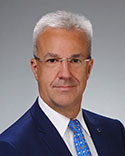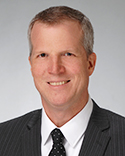Few stories from the intellectual property area can surprise and shock even the most senior practitioner, but this one will. n August 3, 2019, the United States Patent and Trademark Office (USPTO) implemented a rule to require foreign-domiciled trademark filers to appoint an attorney licensed to practice law in the United States. The newly implemented rule requires the appointment of a U.S. licensed attorney and the attorney’s name, address, bar membership number, and a statement regarding their active membership in good standing of a bar in the United States.[1] Many wondered: Why the new requirement?
Among the reasons cited by the USPTO was a surge in trademark applications filed by unrepresented foreign entities. The USPTO has also experienced increased instances of the unauthorized practice of law (UPL). The UPL and direct filings by foreign parties caused questionable specimens and all other types of problematic issues for examiners.
The USPTO Public Advisory Committee meeting presentation in July 2019 showed that China alone was at the heart of more than half of these filings:[2] While very few products sold in the United States use foreign brands or are imported with their name, one is left to wonder why 60,000-plus Chinese applicants in 2018 alone paid for a mark in the United States. Right is a page from an online Chinese board (e.g., TaoBao) on which a foreigner can, for as little as ¥ 2,999.00 Chinese yuan (about $423 USD), secured a certified filings which includes $225 filing fees at the USPTO of $225 USD, and more importantly “filing by a certified U.S. Attorney” (See red underlined portion in grey).
Focusing on one of these 60,000 marks, a Chinese citizen applied for a strange single-word random mark, ANAJOLY, for goods such as bath bombs.[3] This foreign applicant entered two strange email addresses (gmail.com and 163.com) and then the name, bar number and the address of a tax attorney from California. Three weeks later, on May 21, 2019, a second application was filed for a new strange name, LEPTON, but this time for blouses.[4] The foreign email included this time a third strange email address (e.g., vip.qq.com). The same attorney’s name, contact information, and bar number were entered.
In a matter of four months, the same gmail.com address filed eight more single word marks: BSEKT, NNIOV, MASGO, GOLAX, HOMINKER, X-BAY, JOLLYKIDS, and AUTOPLED. Each time, the marks requested were strange sets of characters for even stranger goods. None of these marks have any true meaning in the United States.
The tax attorney whose name was entered as attorney of record in the trademark applications was shocked to learn she was of record at the USPTO and quickly reported the fraud. Despite the best intentions of the USPTO, the fact remains that nothing prevents foreigners from entering any random U.S. attorney contact information into a new trademark application at the time of filing. By using a fraudulent email contact, a foreigner is able to pretend to be the attorney and prosecute the case and it remains unclear how many filings suffer from this deception.
Why are Chinese applicants flooding the Trademark Registry, why has the Trademark Office felt compelled to add an attorney validation, and why are these foreign registrants filing for strange marks no one knows of?
The giant online powerhouse Amazon has been, in recent years, taking proactive measures to curtail the activities of counterfeiters and infringers on all its sites, including in the United States. The same is also true of other large retailers and website marketplaces where small retail items are offered. For example, Amazon has developed two main tools to further this goal, the single-access brand enforcement portal and their third-party stores. Both can now be opened only after a valid U.S. trademark is entered.[5] A valid U.S. trademark is now a growing prerequisite for foreigners to sell on the U.S. platforms. This requirement, coupled with a reported incentive program of the Chinese government for obtaining foreign trademark registrations,[6] can explain these dramatic increases in Chinese actors by any means possible, including, sadly, fraud.
Foreign actors engaged in “drop-shipping” or “reselling” rarely use the mark on products or for actual branding. To avoid delays in getting protection, a random word and random goods often expedites the process (e.g., BSEKT for hair bands[7]).
Because of a pressure on infringers and bad actors from abroad who wish to take advantage of a “quick sale” on platforms, applicants now must use an attorney. In some cases, fraud and misuse of names of U.S. attorneys is used by these bad actors to circumvent these requirements imposed by the Trademark Office and retailers.
But trademark law protects legitimate expressions that serve as a source, and these bad actors never intend to use this mark but for a place holder.
Various jurisdictions have dealt with the problem of counterfeiters and infringers in different ways. The difference between the legal policies of Europe and the United States is highlighted by the differing outcomes of lawsuits brought against the online marketplace eBay. In France, the Louis Vuitton Moet Hennessy Group (LVMH) brought a lawsuit against eBay alleging that the marketplace inadequately policed for the sales of counterfeit goods. France’s Commercial Court of Paris ruled that eBay failed to adequately police its marketplace for counterfeit Louis Vuitton and Christian Dior goods and awarded LVMH damages of approximately $63.2 million.[8] The policies in the U.S. resulted in just the opposite decision. A court in California held that eBay was immune from the claims of providing a marketplace for the sale of counterfeit goods under U.S. federal law despite being aware of such counterfeit goods.[9] Surely, the different policies affect the economics of both sellers that desire to sell products on online marketplaces and the operators of the online marketplaces.
The courts, however, are probably not best suited to determine where the risk of bad actors should be allocated. The legislative bodies of various jurisdictions around the world will continue to struggle with this issue in light of political and economic pressures of their constituents and global partners. In the meantime, the marketplace operators and sellers can take actions to minimize risk and protect its intellectual property.
Notes
- Final Rule in Federal Register available here:Final Rule in Federal Register available here:
https://www.federalregister.gov/
documents/2019/07/02/2019-14087/requirementof-us-licensed-attorney-for-foreign-trademarkapplicants-and-registrants - USPTO Public Advisory Committee meeting, July 2019, available at: https://www.uspto.gov/sites/default/files/documents/TPAC_JULY2019-Quarterly-Meeting.pdf
- U.S. Serial No. 88/410,369.
- U.S. Reg. 5,948,363.
- https://brandservices.amazon.com
- https://www.wsj.com/articles/flood-of-trademark-applications-fromchinaalarms-u-s-officials-1525521600
- U.S. Ser. No. 88/744,064
- Christina Passariello & Mylene Mangalindan, EBay Fined Over Selling Counterfeits—French Court Orders Online Retailer to Pay Louis Vuitton, Other Luxury LVMH Brands $63.2 Million, WALL ST. J., July 1, 2008
- Stoner v. eBay, Inc., 56 U.S.P.Q.2d 1852 (Cal. Super. Ct. 2000).
Alain Villeneuve practices in the area of intellectual property law, assisting clients across a wide array of industries. He is also a British Solicitor. He routinely handles patent and trademark registration, monitoring and defense efforts, and online brand and patent enforcement, including litigation. Villeneuve has represented clients before enforcement boards, including the USPTO’s Trademark Trial and Appeal Board and the World Intellectual Property Organization. A former nuclear and aerospace engineer, Villeneuve is experienced in drafting and litigating patent applications and patents in a number of fields, including mechanical, electrical, wireless and computer software.
John E. Munro works at the Chicago office. He provides a broad perspective of portfolio management and guidance through complex intellectual property issues. Munro prosecutes patent applications before the USPTO and assists clients in the acquisition of U.S. and foreign patent rights in diverse technologies such as software, medical devices, electro-mechanical devices, automotive systems, and consumer products. He also assists clients by preparing freedom to operate and patentability opinions as well as assisting clients in the buying, selling, and licensing of intellectual property assets. Additionally, Munro provides counseling in branding and trademark management.
Reprinted with permission from The Trademark Lawyer Annual 2021.









